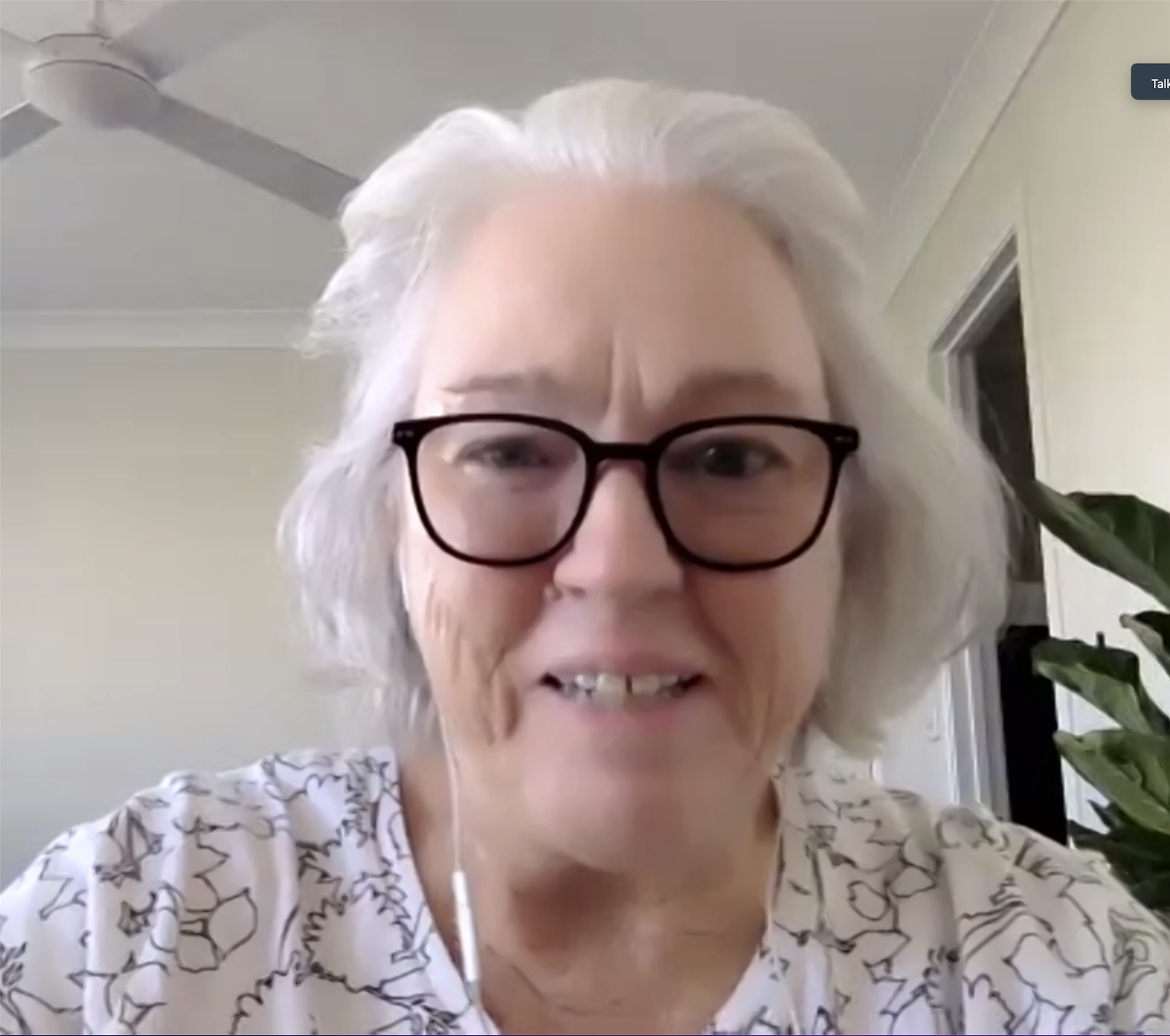 Betty Kitchener told us (by Zoom) about the Mental Health First Aid Program with she developed with her husband, Professor Tony Jorm.
Betty Kitchener told us (by Zoom) about the Mental Health First Aid Program with she developed with her husband, Professor Tony Jorm. Betty described the incidence of 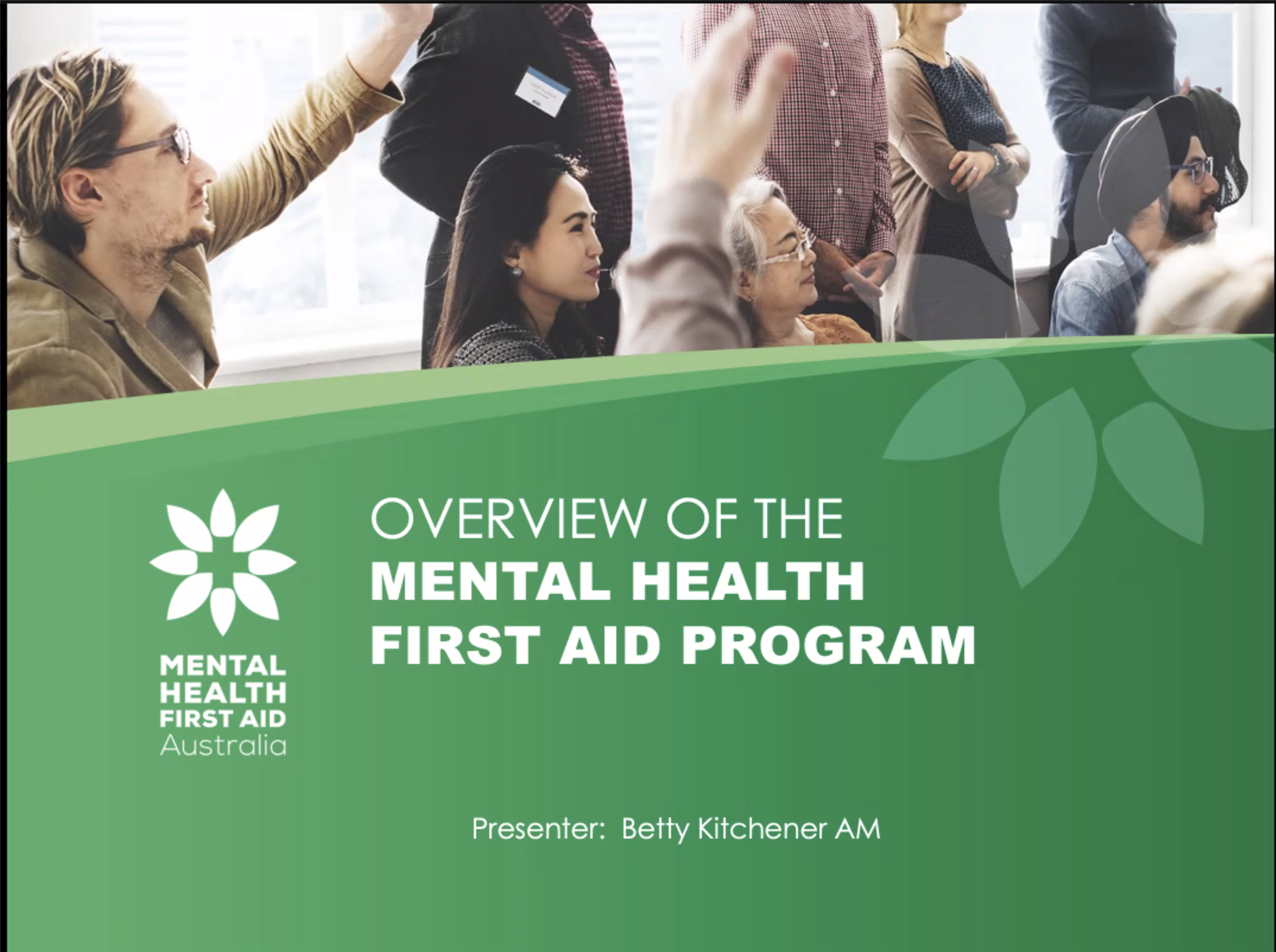 mental illness as around one Australian in five, in any year, but if consideration is made for refugees, those in hospital or under 16 years of age, the incidence is really closer to one in four. The term “mental illness” includes anxiety and depressive disorders, substance abuse and psychotic disorders such as schizophrenia.
mental illness as around one Australian in five, in any year, but if consideration is made for refugees, those in hospital or under 16 years of age, the incidence is really closer to one in four. The term “mental illness” includes anxiety and depressive disorders, substance abuse and psychotic disorders such as schizophrenia.
Although mental illness has a relatively low death rate, the disease burden of the disability causes extensive lifestyle disruption.
Mental illnesses contribute 15% of disease burden, but only get 9% of NHMRC funding, and she noted that Australian Rotary Health is a major non-government funder of mental illness research. From 2023, ARH will focus on the mental health of children.
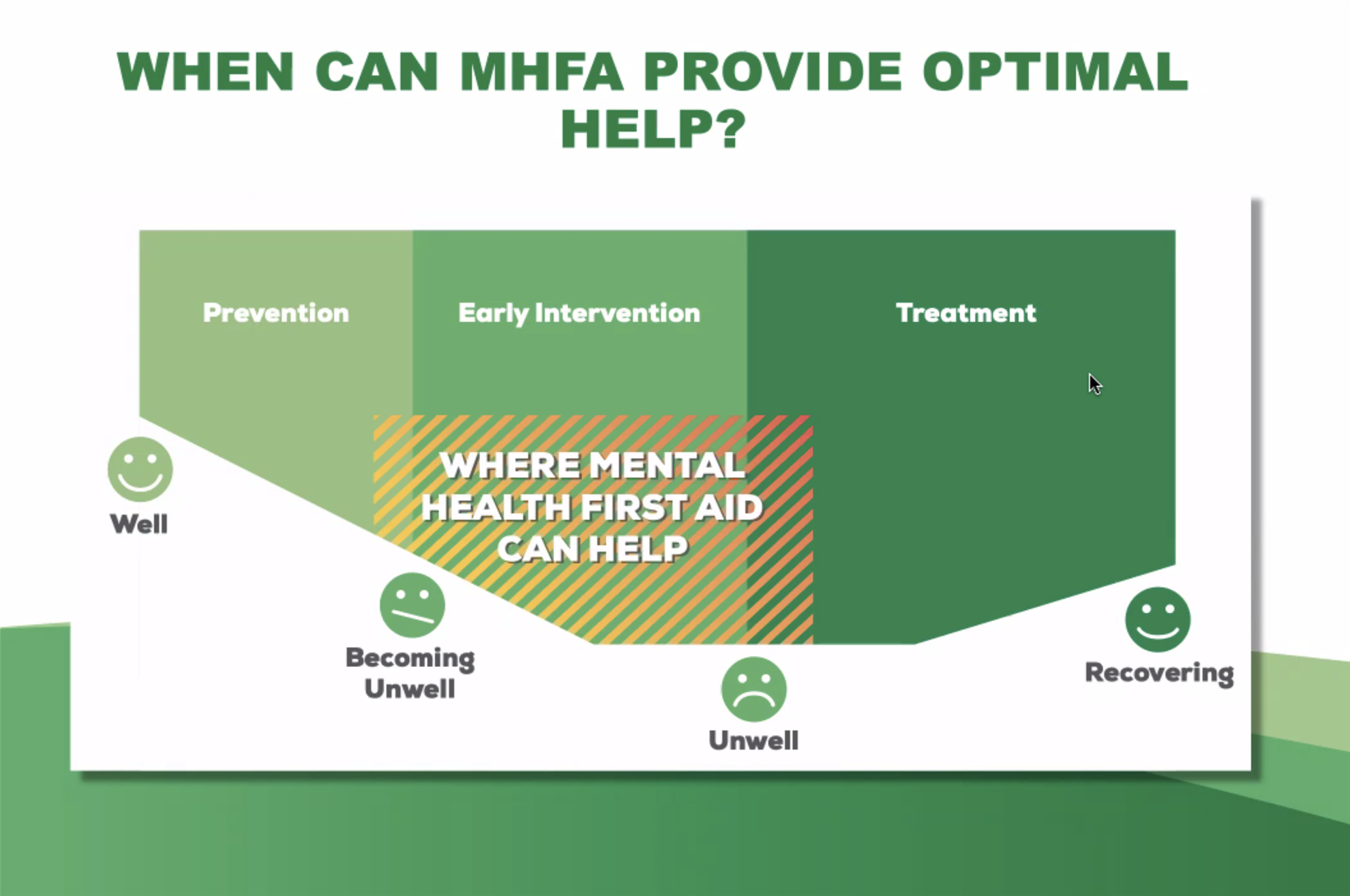 A “mental health literacy” survey had discliosed the public’s lack of ability to recognise mental illness, and their belief about the efficacy of treatment, which led her to consider a first-aid program to recognise and prevent those illnesses.
A “mental health literacy” survey had discliosed the public’s lack of ability to recognise mental illness, and their belief about the efficacy of treatment, which led her to consider a first-aid program to recognise and prevent those illnesses.
Mental health first aid is the help provided to a person developing a mental health problem, experiencing a worsening of an existing mental health problem or in a mental health crisis.
The first aid is given until appropriate professional treatment is received or until the crisis resolves.
MHFA training follows the model of physical first aid:it trains public to give early help and assistance, but does not offer training in diagnosis or therapy.
Betty describes the approach with the acronym “ALGEE”:
Approach the person, assess and assist with any crisis
Listen and communicate non-judgementally
Give support and information
Encourage the person to get appropriate professional help
Encourage other supports
She said there is a need for first aid because: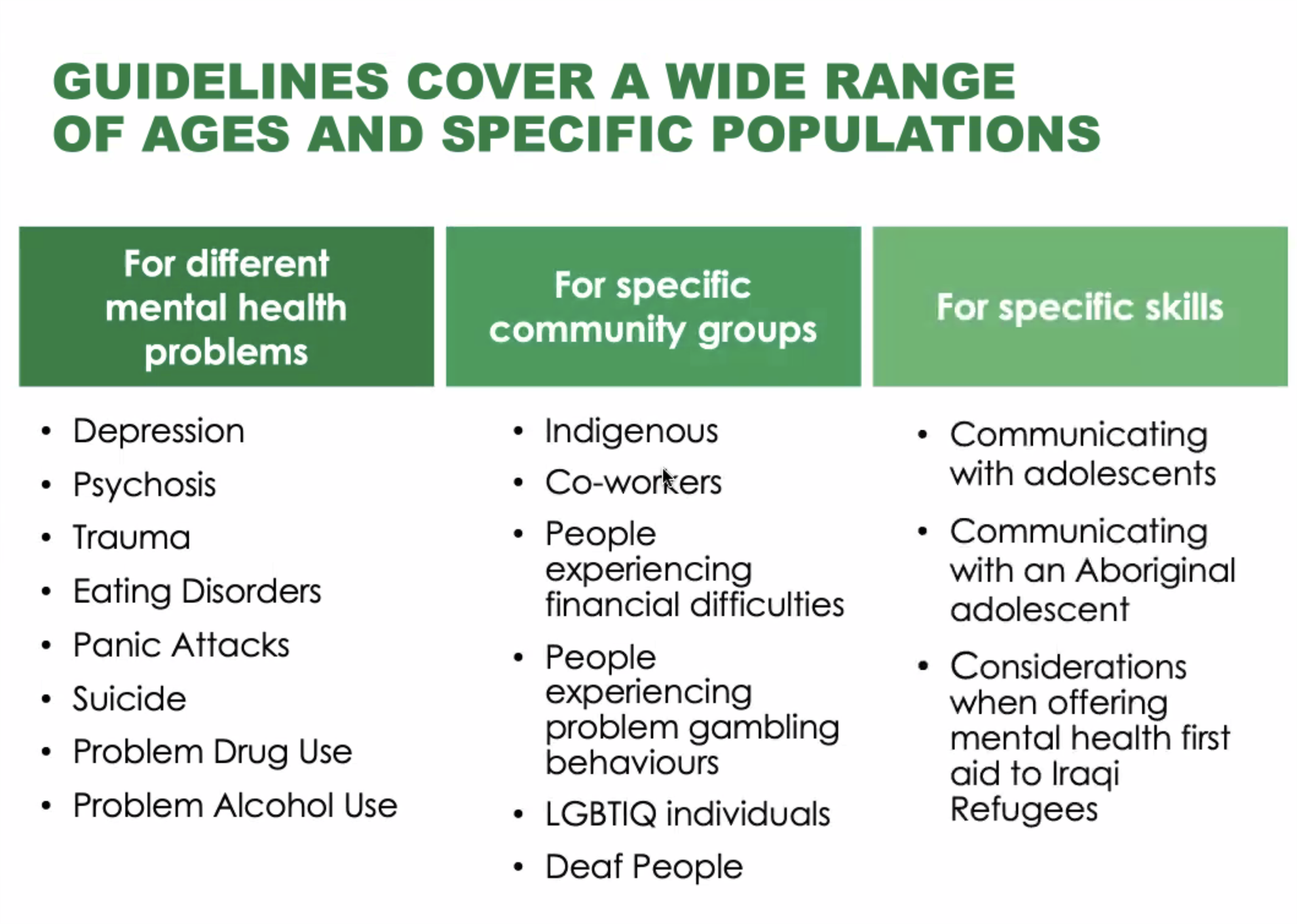
- Mental health problems are common
- Many people are not well informed
- Many do not seek help
- High level of stigma and discrimination
- May not realise that they need help or that effective help is available
- Professional help is not always immediately available
- The helper's actions may determine how quickly the person gets help or recovers
MHFA can provides the best results with early intervention. Betty described first aid guidelines, with standard and specialised courses which cover depression, anxiety problems, psychosis, substance use, eating disorder and gambling problems
The courses also cover crisis situations: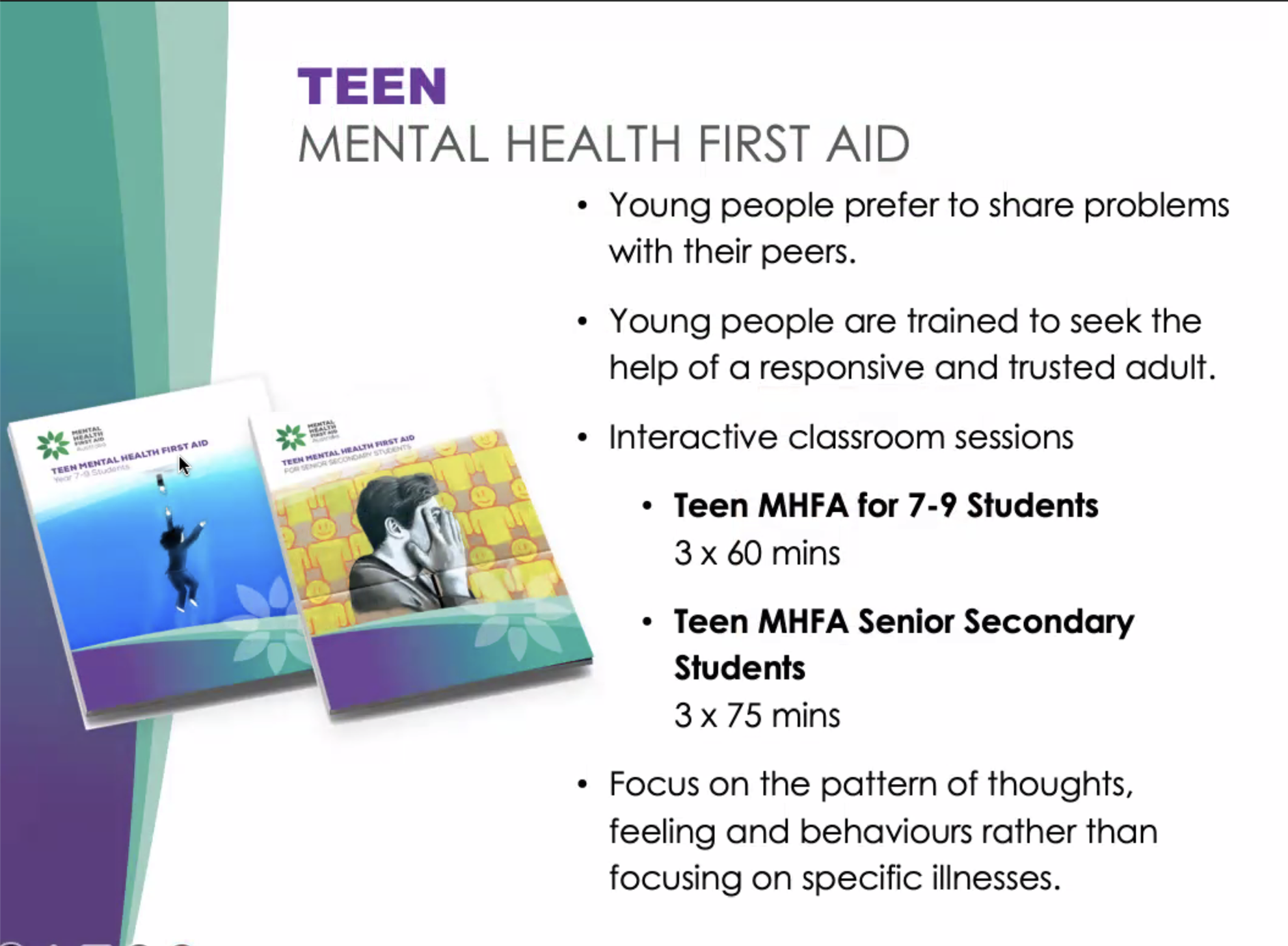
- Suicidal thoughts and behaviours
- Non-suicidal self-injury
- Panic attacks
- Traumatic events
- Severe effects of drug or alcohol use
- Severe psychotic states
- Aggressive behaviours.
Evaluation of the program showed an improvement in recognition, mental health knowledge, confidence in providing assistance, beliefs about treatment, intention to provide first aid, reducing stigmatising attitudes and amount of assistance given.
MHFA has spread internationally to over four million people in 25 countries: 1 million Australians have completed the course, and there are over 50,00 MHFA instructors globally.
Betty described programmes for teenagers, and the role of Australian Rotary Health, before taking questions from the audience. These elicited the need for more research into the chemistry of puberty, and a strong connection with family violence as a source of mental health problems.
MC Katrina Flinn thanked Betty for her informative talk, and smilingly described how we would make a donation to ARH in appreciation.
For more information, visit the MHFA website at https://mhfa.com.au